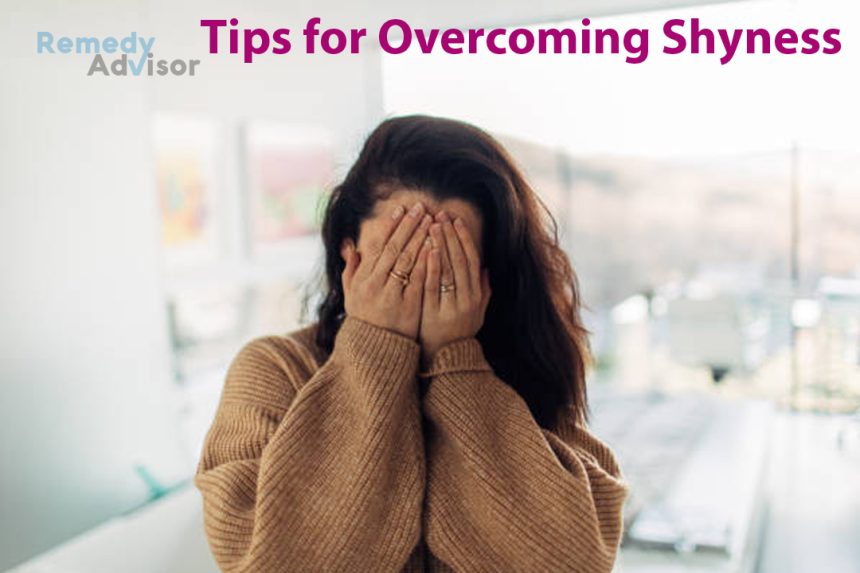Everyone feels shy or anxious sometimes whether it’s butterflies in your stomach when you walk into a party or a cold sweat when it’s your turn to give a toast.
Half of all people fear public speaking. Believe it or not, many say they would rather die than give a speech.
Social anxiety runs the gamut from occasional jitters to a disabling disorder that makes work and relationships impossible. Wherever you fit in, taming those butterflies can vastly improve your quality of life.
Where butterflies come from
Anxiety is the body’s automatic response to perceived danger. The brain signals the hypothalamus, a gland at the base of the brain that stimulates production of the adrenal hormones cortisol and adrenaline.
Once these “stress hormones” enter your bloodstream, your heart begins to race, your muscles contract and you break into a sweat.
Some people blush, as blood rushes into the capillaries in their cheeks. Others develop trembling hands or a queasy sensation in the stomach.
Many people escape these distressing sensations only by avoiding social situations. You may not even think of yourself as shy, just that you “don’t like parties” or “don’t enjoy making presentations.
Problem: Avoidance means missing out on opportunities for pleasure, satisfaction and career advancement.
It’s not a matter of timidity or weakness. One of my patients had no trouble going into perilous situations in his work as a narcotics detective. But the need to testify in court left him paralyzed with fear.
What are you afraid of?
Two basic fears underlie most cases of social anxiety the fear of embarrassment and the fear of being judged harshly. We’re afraid we’ll arouse anger, contempt or ridicule, say something that others will consider stupid or just look foolish.
It’s thoughts like these that give meetings and other social situations that have no physical risk a feeling of danger.
Making matters worse, we tend to become fearful of the bodily manifestations of anxiety. “I’ll blush, and everyone will see it,” we think or, “My sweaty palms will reveal to everyone just how nervous I am.”
Example: One of my patients, John G., was anxious about his upcoming wedding. Why? Because he would have to hold a glass of wine during the ceremony. He was afraid his hand would shake. The wedding guests would see he was a nervous wreck, he believed, and deem him a jerk.
Taming your butterflies
The more you avoid situations that trigger anxiety, the more ingrained your fears become.
Avoidance is just the opposite of what you should be doing. To uproot your fears, you must confront them by doing the very things that you find so frightening.
Helpful: Set reasonable goals, and take small steps toward those goals. If you’re usually shy at gatherings, it’s unrealistic and counterproductive to try to be the life of the party. Instead, aim simply to start a conversation or two.
Other helpful strategies

• Focus on your actions, not other people’s reactions
The person you try to engage in a conversation at a party may be receptive or he/she may walk away. Either way, give yourself the credit you deserve for what you did initiating the contact.
• Become aware of the unrealistic thoughts that make you anxious
Before making a toast or a business presentation, do you automatically shift into “low-confidence” gear? Do you think, “I’ll mess up, and they’ll laugh at me”?
In social situations, do you find yourself thinking, “I’ll be tongue-tied and run out of things to say?”
In such cases, the best antidote is to think realistically. In your presentation, how likely are you really to mess up? Will people really laugh if you flub a line? Or will they appreciate your humanness and listen more closely?
Replace negative, anxiety-provoking thoughts with positive ones “I’ve given presentations before, and they’ve been fine. If anything, I’ve gotten better since last time.”
When my patient John G. contemplated his prenuptial jitters, he saw how unrealistic they were. If his hand did shake, he realized, his friends and family would not think he was a jerk. They would think he was moved by the occasion and respect him all the more.
• Rehearse situations that make you nervous
If you’re scheduled to give a speech, hone your talk beforehand using a tape recorder or a video camera. Stand in front of a mirror, or have a friend observe you.
In the case of John G., rehearsing his wedding with a family member helped him boost his confidence.
People who fear public speaking can gain priceless experience by participating (along with other fearful speakers) in programs offered by Toastmasters International.
• Develop skills that will give you confidence
Read up on how to give an effective business presentation or speech. Observe people whose social graces you admire, making mental notes of what works for them.
Many adult-education centers offer courses in social skills. These classes teach you what to do at parties and on dates.
When self-help fails
Many people who cannot control anxiety on their own benefit from cognitive-behavioral therapy. Via this form of therapy, you learn to identify and change negative, anxiety-producing thoughts and to become more confident and outgoing.
In just a few months of individual or group therapy, you can learn skills that will help you for the rest of your life.
When cognitive-behavioral therapy isn’t enough, I prescribe anxiety-reducing medication.
For occasional anxiety if you have to give a talk once a month, for instance the beta blocker propranolol (Inderal) is often best. It blunts the body’s reactions to adrenaline, helping to curb symptoms such as a pounding heart or queasy stomach.
Many musicians and other performers who suffer from stage fright get relief from propranolol.
When anxiety occurs on an everyday basis, I often prescribe fluoxetine (Prozac) or another selective serotonin reuptake inhibitor (SSRI). Anxious people who take SSRIs say they have fewer fearful thoughts and feel more comfortable in social situations.
If SSRIs fail or if sexual problems or other side effects make them intolerable I prescribe a tranquilizer like clonazepam (Klonopin) or a monoamine-oxidase inhibitor antidepressant like phenelzine (Nardil).
Some people find that a few months of drug therapy is all that’s needed. For others, longterm therapy is needed to maintain their improvement.







